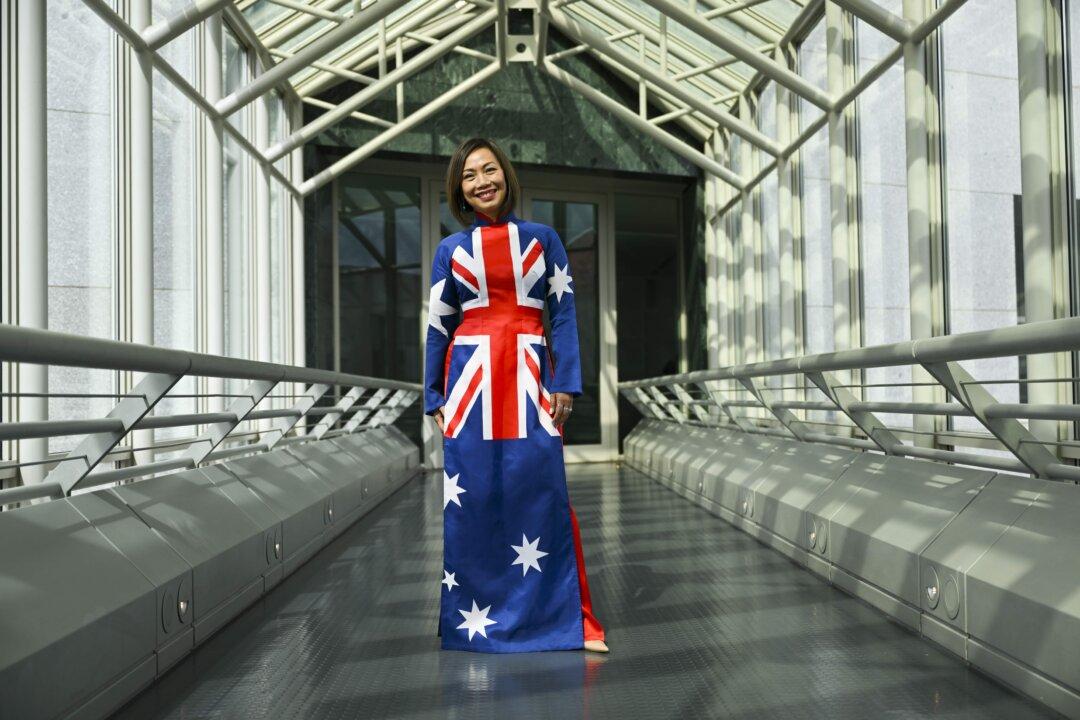In her maiden speech to Parliament, Independent MP Dai Le recounted her journey of fleeing Vietnam, expressed gratitude for Australian values, and criticised pandemic lockdowns while urging the government to unlock the potential of the country’s large migrant workforce.
The Vietnamese-born MP managed to defeat high-profile candidate Kristina Keneally in the traditionally safe Labor Party seat of Fowler, a Western Sydney electorate made up primarily of migrants, refugees, and low to middle-income families.
Wearing an áo dài—a traditional Vietnamese dress—emblazoned with the Australian flag, Le said she wanted to “combine both worlds, the two worlds I constantly straddle.”
Lockdowns Likened to Communist Dictatorship
During her address, the independent MP also called on the government to increase job opportunities for the migrant workforce like those in her electorate of Fowler, where the unemployment rate is 10 percent.
She noted that the Fowler community needed a representative who remembered their personal challenges “not just at election time but every day.”
“While it is a privilege to represent the people of Fowler, we are not a privileged people.”
“We are the forgotten people, and yet we are the backbone of Australia.”
Le used the government’s harsh COVID-19 lockdown in Western Sydney as an example of the major parties “neglected and abandoned” her constituents.
The MP expressed frustration when saying people in her community weren’t allowed to travel beyond a five kilometre radius from their homes, were told to get travel permits, forced to get tested every three days and were constantly monitored by police.
“The last time I looked, a government that takes away individuals’ liberty to choose how they want to live, work and raise families was called a communist dictatorship, a political system that my family and I escaped from,” Le said.
As the country is grappling with a skills shortage, Le encouraged the government to capitalise on the local workforce and suggested that the development of public transport and housing should catch up with the increase in migration.
“We have migrants and refugees with professional qualifications who are now working in under-qualified occupations,” she said.
“We must work to swiftly create pathways for recognition of their qualifications so that we can engage their skills in our community.”




